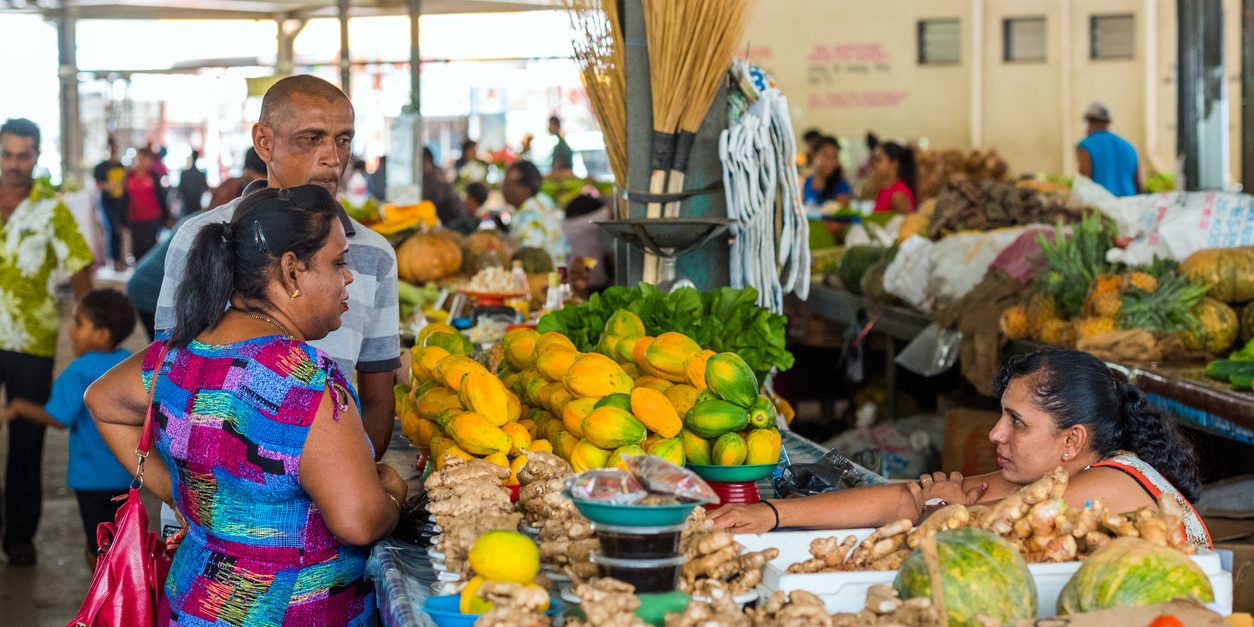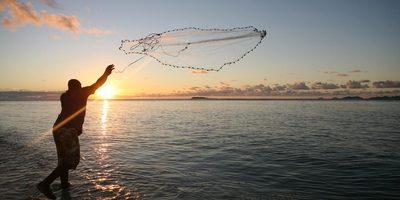
Action needed to reduce high salt and sugar intakes in Fiji
The problem
Globally, people are eating too much salt and sugar. The World Health Organisation recommends reducing salt and sugar to prevent non-communicable diseases like heart disease, stroke, diabetes and obesity.
The Pacific Region, including Fiji, have been world leaders when it comes to developing food policies to address poor diets. For example, it was the first region in the world to implement taxes on sugar sweetened beverages. Yet despite this, countries in the region still face a considerable burden of poor health due to diet-related disease.
As part of our Global Alliance for Chronic Diseases and NHMRC funded work on “Scaling-up food policies in the Pacific Region” we partnered with Fiji National University and the Ministry of Health Fiji to measure population salt and sugar intake to help inform the targeting of effective interventions.
What we found
From our nutrition survey of over 500 adults in the Central Division of Fiji we found that adults were eating almost double the maximum recommended amount of salt and over three times the ‘ideal’ amount of free sugars (sugar intake, excluding sugar from fruits, vegetables and milk) - around 5% more sugar than the average person eats in Australia. Fijians were getting most of their salt from mixed dishes cooked at home (things like curries and stews) and from bread and bakery products. Almost 50% of their sugar intake was from drinks, either in the form of sugar added to hot drinks or from sugar sweetened beverages. Bread and bakery products were also a key source of sugar in the diet.
The following key harmful dietary behaviours were observed:
- Adding salt or salty sauces to home cooked meals
- High intakes of salt and sugar from bread and bakery products
- Adding sugar to hot drinks
- Drinking sugar sweetened beverages
Next steps
Given the high levels of salt and sugar intake and the main sources of these in the diet there are key opportunities to intervene:
- Changing individual behaviour, for example through awareness campaigns highlighting the need to reduce sugar that is added to hot drinks, to stop drinking sugar sweetened beverages and reduce the amount of salt added during cooking.
- Improving the food environment by making sure products that are lower in salt and sugar available and accessible. For example, by introducing mandatory targets for salt and sugar content in processed packaged foods and encouraging product reformulation.
- Previous work from this project has also shown that there are opportunities to strengthen the current sugar-sweetened beverage tax in Fiji.
Findings from this survey have been used to support the development of communication materials and share these findings with policymakers in Fiji (via infographics). Findings from the survey are also being used to encourage behaviour change in communities. As a start, we have targeted the behaviour of adding sugar to drinks, through our animation “A little less everyday …”. Roll-out of this animation is being led by the Wellness Unit within the Ministry of Health, Fiji.
Our findings give urgency to the need for implementation of the strategies focused on improving diets outlined in Fiji’s Wellness Plan and the new NCD Strategic Plan. In addition, the findings highlight the need to endorse the Food and Nutrition Security policy in Fiji, currently under review by Government.



